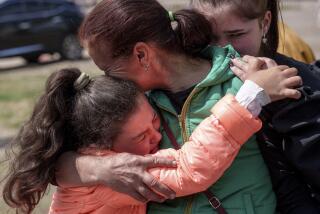Putin’s back, unfortunately
Meet Russia’s new boss — same as the old boss.
If anyone was still under the illusion that Russia had evolved from a totalitarian regime into something like a democracy, that notion was dispelled over the weekend when dictator-for-life Vladimir Putin announced that he intended to return to the Kremlin in March. Russia is for all intents and purposes a one-party state, so simply announcing his candidacy makes his election virtually certain.
Putin, who served as president from 2000 to 2008, was forced out of office by a constitutional ban on serving more than two consecutive terms. Rather than leave government, he opted instead to become prime minister and handed the presidency to his ally, then-Prime Minister Dmitry Medvedev. Now, the two men will probably switch back, with Putin returning as president and Medvedev becoming prime minister. Because the presidential term has been increased from four years to six, this means Putin could remain in office for 12 more years — by which time he would be 72 and the longest-serving Russian leader since Josef Stalin.
Although few doubted that Putin held the strings of power during Medvedev’s four years as president, his imminent return to the top office is being greeted with dismay in Washington. Publicly at least, Medvedev has been far more accommodating to U.S. interests than Putin was during his time as president. Medvedev has worked to improve trade relations with the rest of the world and is actively pursuing Russian membership in the World Trade Organization, a topic of little interest to Putin. Medvedev seemed to have developed a genuine rapport with President Obama on such issues as limiting nuclear weapons, while Putin’s term as president was marked by decaying relations with the U.S. under George W. Bush and an overwrought spat over U.S. missile defense sites in Eastern Europe.
But it’s the reaction among Russians, rather than Americans, to Putin’s naked power grab that we find particularly dismaying. Former Soviet leader Mikhail Gorbachev said Putin’s return could lead to six years of stagnation, but the words of a man adored by the West for his role in dismantling the Soviet empire hold little sway in his native country. There were scattered protests by a handful of liberal activists after Putin’s announcement and some critical articles in the small liberal press. But the dominant response was silence. Rising oil and gas prices that coincided with Putin’s rise to power have greatly increased Russian prosperity, and the return to stability under his authoritarian rule, after a messy transition to democracy in the mid-1990s, has made him irresistibly popular. Yet Putin is extremely unlikely to implement the reforms needed to democratize Russia or reduce its overwhelming corruption. That means the country is in for a rough future and, with Putin in a position to spearhead his highly aggressive foreign policy stances, so is the rest of the world.
More to Read
A cure for the common opinion
Get thought-provoking perspectives with our weekly newsletter.
You may occasionally receive promotional content from the Los Angeles Times.










